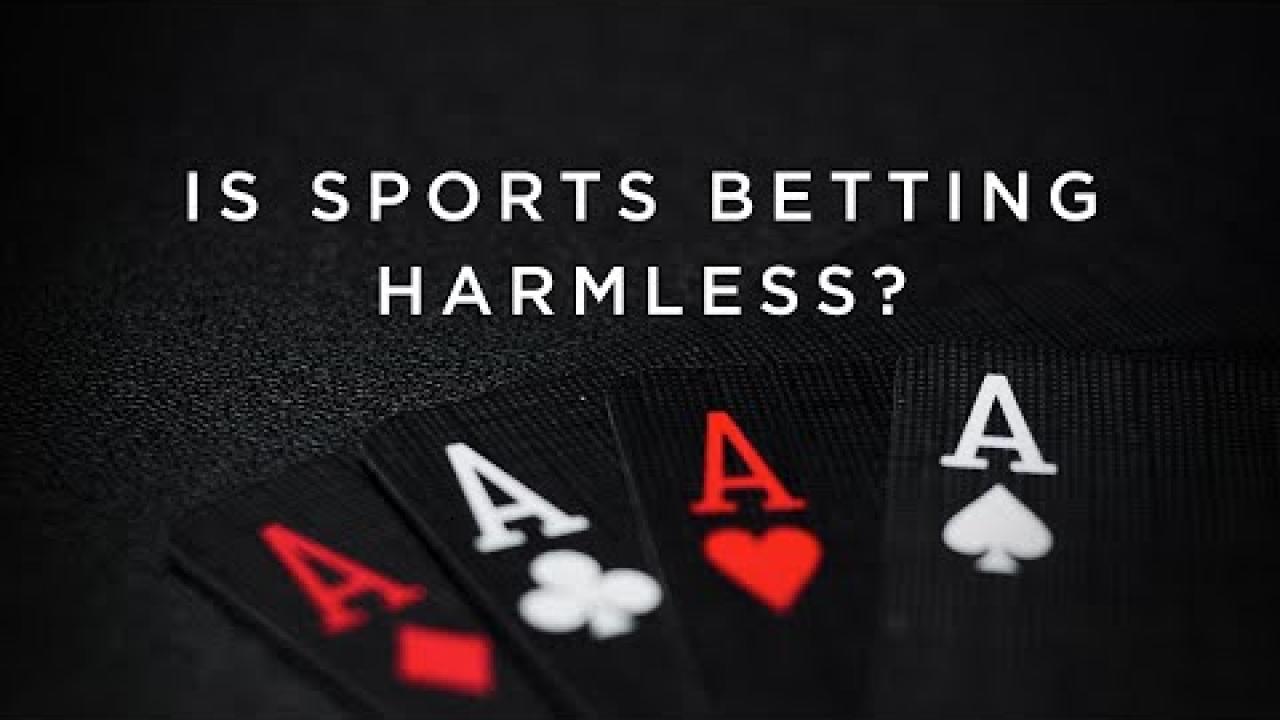
Is Sports Betting Harmless Fun or a Serious Addiction?
"Wanna bet?" If you've watch any sporting events on television, or any sports content online, you’ve likely noticed a dramatic increase in advertisements for online sports gambling. They always conclude with something along the line of "remember to always bet responsibly." Why is this industry exploding in popularity? If its just a way to make the game more exciting—is it really hurting anyone?
"Wanna bet?" If you've watch any sporting events on television, or any sports content online, you've likely noticed a dramatic increase in advertisements for online sports gambling. They always conclude with something along the line of "remember to always bet responsibly." Why is this industry exploding in popularity? If its just a way to make the game more exciting—is it really hurting anyone?
Betting on sports is nothing new. The effect that betting can have on sports has been a concern since the Black Sox scandal of 1910 which resulted in 8 players being accused of throwing, or purposely losing, the world series in collusion with sports gamblers.
Since that time, gambling on sports has generally been legally confined to a few specific locations such as Las Vegas, or by circumventing the laws altogether through black-market gambling. That has changed in dramatic fashion in just a short period of time. In May of 2018, the United States Supreme Court repealed the Professional and Amateur Sports Protection Act (PASPA). Canada followed by approving Bill C-218, known as the Safe and Regulated Sports Betting Act in June of 2021. Now, in many states and provinces, betting on anything from who's going to win the big game to who's going to win the coin-flip can be done from the comfort of your own basement—all you need is a smart phone.
How big has the industry grown? In the four years since the repeal of PASPA, the Guardian reports that Americans have spent $125 Billion in sports betting. It describes that figure this way:
To comprehend just how much $125bn is, consider this: It's a bit more than the amount that was spent on pet food, supplies and veterinary care in the entire country last year, and more than the net income for America's farmers last year. ("Americans have bet $125bn on sports in four years since legalization", theGuardian.com, May 13, 2022)
Data Bridge Market research published its findings and the estimates it puts forward show that this industry is likely to continue expanding rapidly:
"Data Bridge Market Research analyses that the Sports Betting Market was valued at USD 76.75 billion in 2021 and is expected to reach USD 167.66 billion by 2029" ("Sports Betting Market Size Is Likely to Experience a Tremendous Growth," GlobeNewswire, July 14, 2022)
Some point to these numbers as a great success. Those who were gambling illegally, are now doing it legally, and being taxed on it—its good news for everyone!
Gambling counsellor, Amanda Laprade explains some of the problems:
"the dopamine the brain receives while someone is waiting for the result of a bet, such as a player hitting a shot or a goalie making a save, is just as powerful as when the result actually happens. That's what makes it so addictive." (Amanda Laprade as quoted in "Sports betting is easier than ever and gambling addiction experts are worried", CBC.ca)
You may not realize this, but "People who struggle with problem gambling are the highest risk of suicide, [more] than any other addiction." (Amanda Laprade as quoted in "Sports betting is easier than ever and gambling addiction experts are worried", CBC.ca)
A recent study published by ScienceDirect indicates that sports betting is even more addictive than other types: "Sports betting, relative to non-sports betting, has been more strongly linked to gambling problems and cognitive distortions related to illusion of control, probability control and interpretive control." ("Sports-betting-related gambling disorder: Clinical features and correlates of cognitive behavioral therapy outcomes," ScienceDirect.com, Addictive Behaviors October 2022)
Essentially, because the participant believes they have a better ability to predict the outcome of a sporting event than they would at a slot machine or craps table, they are more likely to continue gambling despite their already incurred losses.
Watching sports used to be about cheering the home team as they put their skill to the test against others, performing feats that we athletically average individuals could only dream of. Sadly, each and every game now features far more losers than just those who have a lower score. Many of the same arguments used to support sports betting are the same that were used to support casinos and other types of betting. We detail many of those in our video: Are Casino's Good for Communities?
To comprehend just how much $125bn is, consider this: It's a bit more than the amount that was spent on pet food, supplies and veterinary care in the entire country last year, and more than the net income for America's farmers last year. ("Americans have bet $125bn on sports in four years since legalization", theGuardian.com, May 13, 2022)
"Data Bridge Market Research analyses that the Sports Betting Market was valued at USD 76.75 billion in 2021 and is expected to reach USD 167.66 billion by 2029" ("Sports Betting Market Size Is Likely to Experience a Tremendous Growth," GlobeNewswire, July 14, 2022)
"the dopamine the brain receives while someone is waiting for the result of a bet, such as a player hitting a shot or a goalie making a save, is just as powerful as when the result actually happens. That's what makes it so addictive." (Amanda Laprade as quoted in "Sports betting is easier than ever and gambling addiction experts are worried", CBC.ca)
"People who struggle with problem gambling are the highest risk of suicide, [more] than any other addiction." (Amanda Laprade as quoted in "Sports betting is easier than ever and gambling addiction experts are worried", CBC.ca)